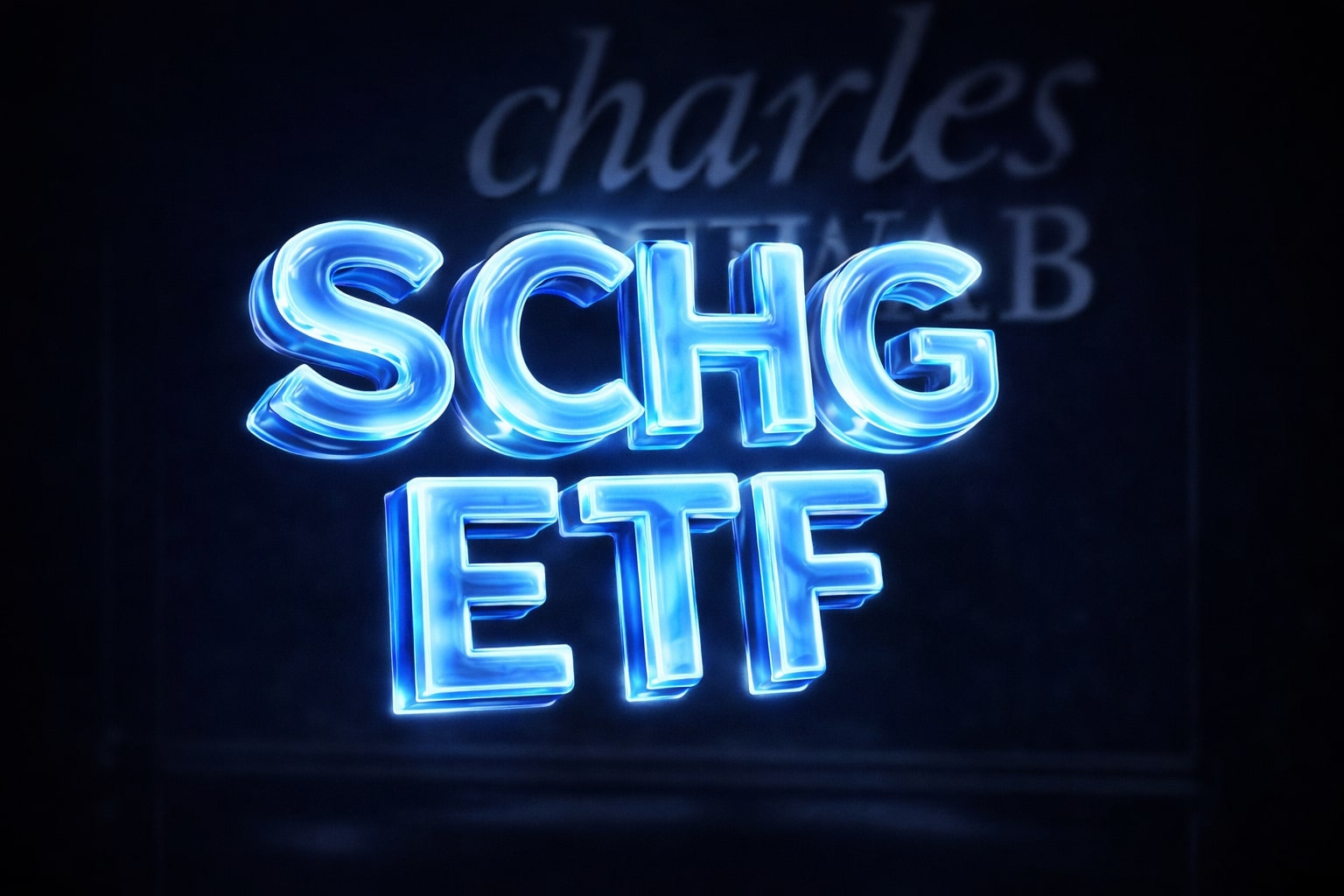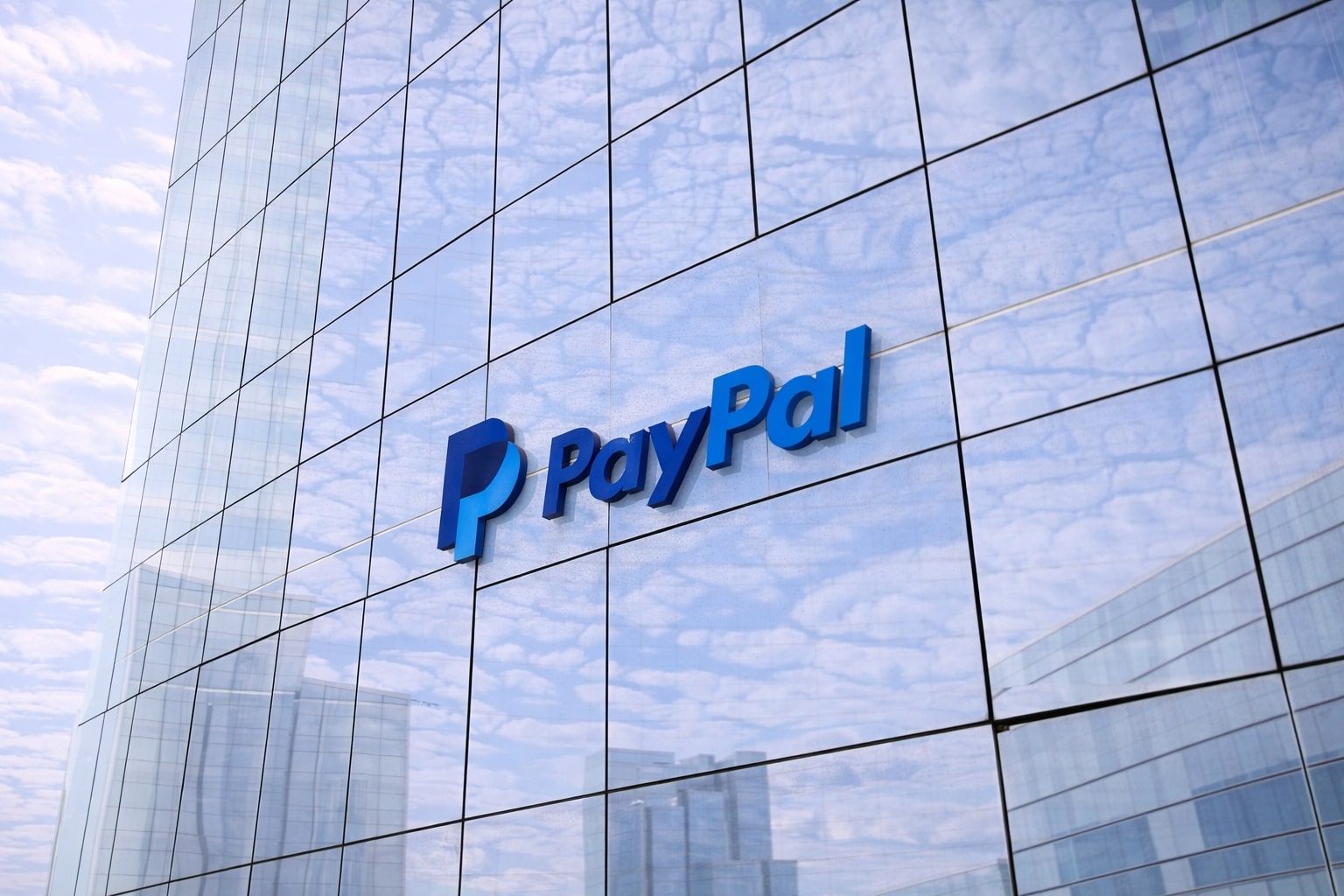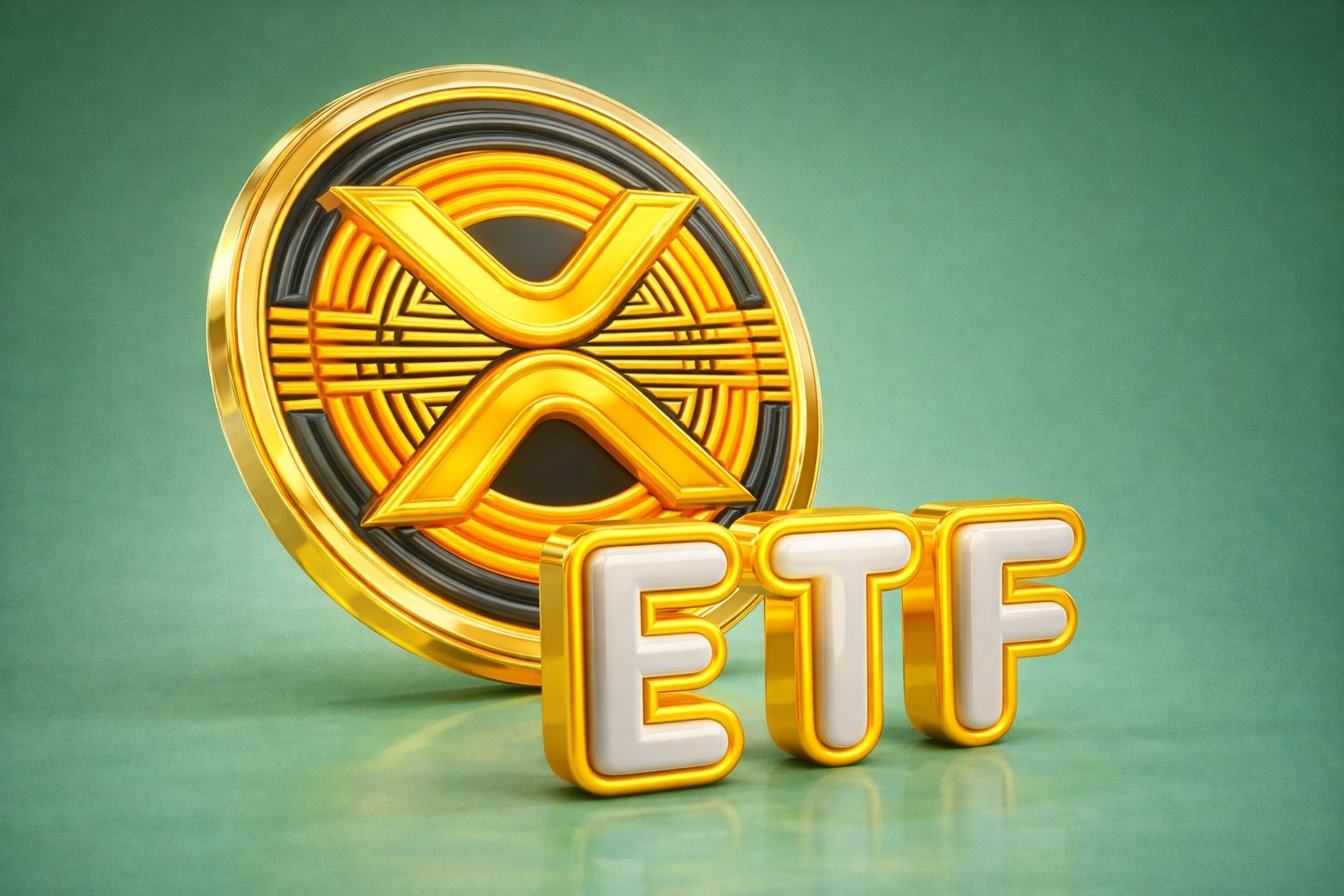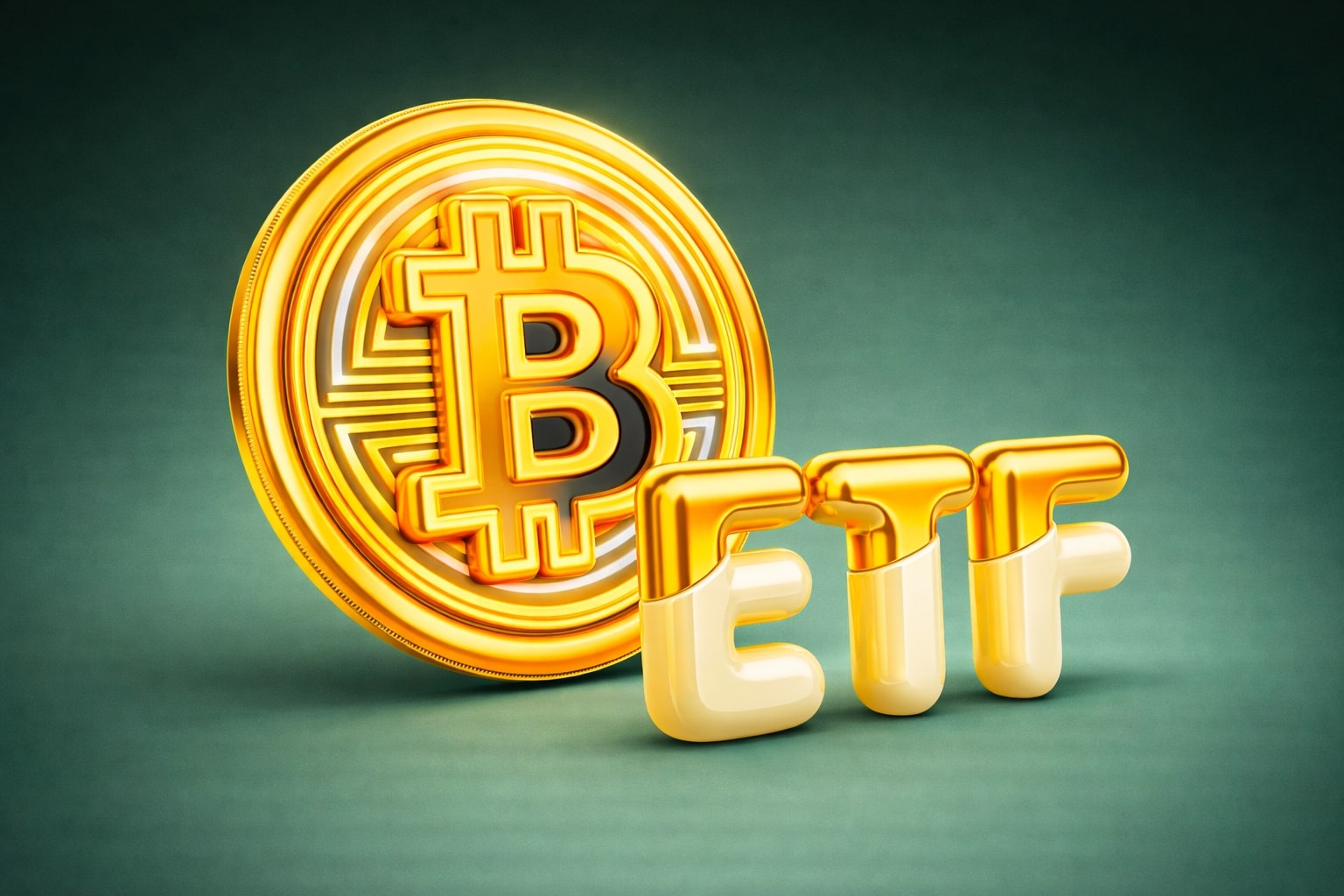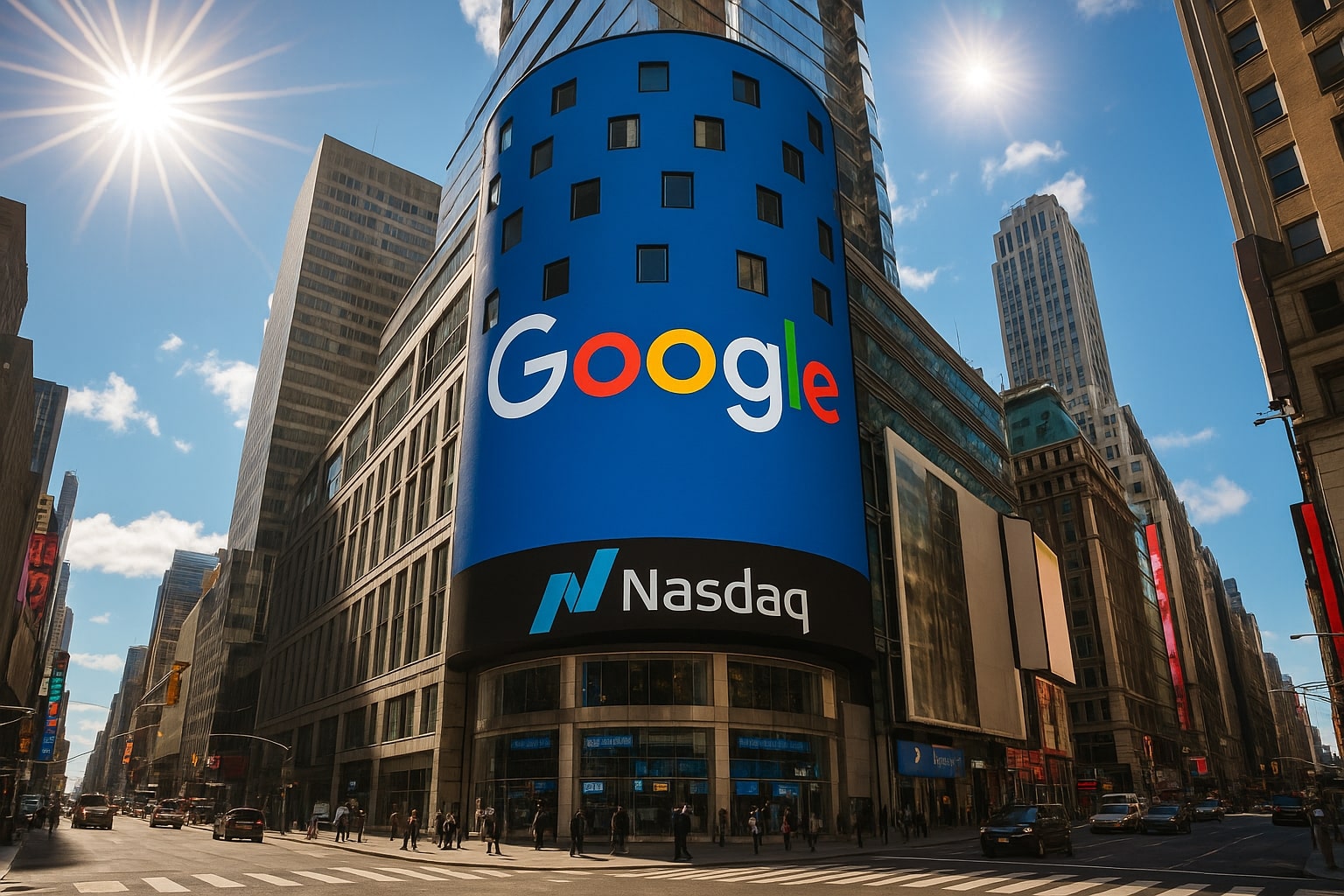
Alphabet, Google Stock Price (NASDAQ:GOOG) Hits $254.59 as AI Expansion and Quantum Breakthrough Fuel $3.08T Rally
Google’s parent surges near record highs after Bernstein lifts price target to $260, citing explosive AI adoption, cloud acceleration, and quantum advantage milestone | That's TradingNEWS
Alphabet (NASDAQ:GOOG) Powers to $254.59 as AI, Cloud, and Quantum Breakthroughs Push Market Cap Beyond $3 Trillion
Alphabet Inc. (NASDAQ:GOOG) climbed to $254.59 on Thursday, gaining 0.82% and extending its powerful year-long rally as investors doubled down on the company’s accelerating dominance in artificial intelligence, cloud infrastructure, and quantum computing. With a market capitalization now at $3.08 trillion, Google’s parent has solidified its position as one of the most profitable technology powerhouses on earth. The rally comes ahead of the company’s highly anticipated Q3 2025 earnings on October 29, where Wall Street expects $100 billion in revenue and $2.29 in EPS — a continuation of Alphabet’s unbroken streak of double-digit growth that has reshaped the tech sector’s hierarchy.
Revenue for the June 2025 quarter reached $96.43 billion, marking a 13.79% increase year-over-year, while net income surged 19.38% to $28.2 billion. The company delivered an EPS of $2.31, up 22.22%, while maintaining a robust 29.24% net profit margin despite a 19.75% rise in operating expenses to $26.12 billion. EBITDA stood at $36.27 billion, rising 16.5%, underscoring strong execution across its core digital advertising, YouTube, and cloud units. The company’s balance sheet remains a fortress — with $95.15 billion in cash and short-term investments, total assets of $502.05 billion, and shareholder equity of $362.92 billion. Alphabet’s return on assets of 16% and return on capital of 20.09% rank among the highest in large-cap tech, while a modest 0.33% dividend yield reflects its strategy of reinvesting for exponential growth rather than short-term payouts.
The bullish tone surrounding the stock intensified this week after a wave of analyst upgrades. Bernstein raised its price target to $260 from $210, citing Gemini AI’s rapid adoption and the company’s accelerating integration of AI across Search, YouTube, and Cloud. BofA followed with a $280 target, highlighting that AI tools are enhancing search revenue rather than cannibalizing it, while Citizens reiterated a $290 price target, driven by expanding cloud demand and Alphabet’s unmatched ecosystem scale. On average, the TipRanks consensus stands at $261.53, suggesting further upside from current levels.
Alphabet’s growth engine continues to be its Google Cloud Platform (GCP), which expanded 25.6% year-over-year in the last quarter, powered by landmark enterprise deals. Meta’s six-year contract worth over $10 billion and OpenAI’s decision to use Google Cloud infrastructure for model training have fortified Google’s position as a top-tier AI infrastructure provider. The segment now generates over $13 billion per quarter and is expected to surpass 35% of total revenue by 2026 as AI workloads accelerate globally. The company also unveiled a $15 billion investment in a new AI hub in Visakhapatnam, India, capable of 1 GW of compute power, signaling a long-term infrastructure strategy focused on expanding AI access across Asia-Pacific. That region already leads Google’s growth, with revenue up 19.2% year-over-year to $16.5 billion, compared to 14.5% in EMEA and 16.1% in the Americas.
Beyond cloud and advertising, Alphabet’s most striking achievement this quarter came from its quantum computing breakthrough. The company confirmed a verifiable 13,000x performance speedup using its Willow chip to execute the Quantum Echoes algorithm, marking the first scientifically verified “quantum advantage.” The feat, developed with researchers at UC Berkeley, successfully simulated molecular behavior in record time — a major step toward applying quantum computing in real-world fields like drug discovery and materials science. Although commercialization remains years away, the validation places Google ahead of IBM, Microsoft, and emerging startups such as IonQ and Rigetti in the race for usable quantum systems. With $95 billion in liquidity, Alphabet has the capital to keep funding this innovation frontier without compromising profitability — a key differentiator from cash-strapped pure-play quantum firms.
Read More
-
SCHG ETF Near $33 High As AI Giants Drive 19% 2025 Rally
01.01.2026 · TradingNEWS ArchiveStocks
-
XRP-USD Stuck At $1.87 As XRPI Near $10.57 And XRPR Around $14.98 Despite $1.16B ETF Wave
01.01.2026 · TradingNEWS ArchiveCrypto
-
Natural Gas Price Forecast - NG=F Slides Toward Key $3.57 Support As Ng=F Extends 33% Drop
01.01.2026 · TradingNEWS ArchiveCommodities
-
USD/JPY Price Forecast - Yen Near 156 As Fed Cuts Meet Boj Hawkish Turn
01.01.2026 · TradingNEWS ArchiveForex
Alphabet’s massive $85 billion CapEx program for 2025 continues to draw investor scrutiny but reflects strategic reinvestment rather than risk. The company has been scaling its data center capacity aggressively to meet soaring AI workloads, even as free cash flow temporarily dipped to -$888.75 million due to investment outflows of $24.54 billion, up 782% from last year. Cash from operations totaled $27.75 billion, more than sufficient to absorb near-term spending spikes. Alphabet’s capital intensity has climbed, but its global infrastructure moat — spanning AI chips, fiber networks, and hyperscale data centers — positions it to dominate the computational economy that’s defining the decade ahead.
Regulatory and operational risks persist, however. The DOJ’s September ruling restricting exclusive deals for Search, Chrome, and Gemini could force Alphabet to renegotiate its $20 billion agreement with Apple for Safari default search status. While unlikely to threaten Google’s market share, the loss of exclusivity could raise long-term costs. Additionally, the company’s headcount grew to 187,103, up from 180,900 in early 2024, despite leadership’s prior focus on AI-driven efficiency. Analysts have flagged this increase — especially graduate hiring — as a potential drag on productivity if automation doesn’t offset new labor expenses. Still, CFO Philipp Schindler maintains that operating leverage will improve through 2026 as cloud scale and AI monetization outpace expense growth.
On valuation, Alphabet trades at 27.55x earnings and 8.42x price-to-book, a premium multiple justified by its 19.3% net income growth and expanding returns. Compared to 2021’s valuations, the stock remains cheaper on a growth-adjusted basis. With the stock trading in a tight range between $252.77 and $255.86, a decisive close above $257.88, its 52-week high, could trigger a technical breakout toward $275–$280, in line with recent analyst targets. The stock’s average volume of 20.15 million shares and consistently strong institutional inflows reflect broad market conviction.
Insider sentiment remains neutral to positive, with no significant selling by top executives. Investors can track executive and institutional transactions via Alphabet’s stock profile and insider transaction log. The absence of major insider divestments ahead of Q3 earnings is often interpreted as confidence in near-term results.
Alphabet’s performance this year represents a fusion of momentum, innovation, and scale rarely seen in corporate history. Its 29.2% profit margin, $3 trillion valuation, and expanding AI and cloud ecosystem leave little doubt about its structural advantage. While short-term risks — from regulatory actions to rising CapEx — could create volatility, the underlying fundamentals remain exceptional. With robust double-digit growth, verified quantum breakthroughs, and deepening AI monetization, Alphabet (NASDAQ:GOOG) remains a Buy heading into earnings, with eyes set on a clean breakout above $260 that could carry the stock into another record-setting quarter.














